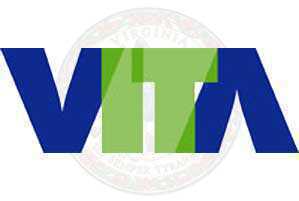Virginia accepting entries for 2014 Governor’s Technology Awards
 The Virginia Information Technologies Agency is now accepting entries for the 2014 Governor’s Technology Awards, which for the past 17 years have recognized the success of public sector IT projects.
The Virginia Information Technologies Agency is now accepting entries for the 2014 Governor’s Technology Awards, which for the past 17 years have recognized the success of public sector IT projects.
The opening of the contest was announced earlier this week by Virginia Gov. Terry McAuliffe, Secretary of Technology Karen Jackson and commonwealth Chief Information Officer Sam Nixon.
The awards are given out in nine award categories and recognize the work of local, state and educational entities within the state of Virginia. Submissions focus on improvements in the business of government made possible by strategic use of information technology.
A committee of judges that includes IT leaders from state agencies, localities, the legislature, the courts and education will evaluate nominations.
Awards will be presented to honorees at a special ceremony during the Commonwealth of Virginia Innovative Technology Symposium slated Sept. 4-5, 2014. Executive summaries of winning entries will be posted online to provide inspiration and best practice examples to peers and partners.
All nominations must be received by July 24, 2014, using the online submission form at www.covits.virginia.gov.
The 2014 Governor’s Technology Awards categories are:
- Cross-Boundary Collaboration on IT Service Delivery Initiatives: Recognizes the innovative use of IT to share data easily across boundaries, create knowledge-sharing culture, support common business processes or promote innovative partnership programs. Entries should be submitted jointly by at least two government entities.
- IT as Efficiency Driver – Government to Citizen: Recognizes the innovative use of IT to improve citizen access to and service from governmental entities. Included are projects which improve citizens’ electronic interaction with government, promote availability, usability and/or transparency of information and increase public awareness and adoption of services.
- IT as Efficiency Driver – Government to Business: Recognizes the innovative use of IT to promote efficiency by improving business access to and service from governmental entities. Included are projects to improve business’ electronic interaction with government, promote availability, usability and/or transparency of information and increase business awareness and adoption of available services.
- IT as Efficiency Driver – Government to Government: Recognizes the innovative use of IT to promote efficiency in government. This category promotes projects that enable organizations to do more with less. Results realized may include a dollar return on investment, realignment of staff time and/or newly transparent processes/information.
- Innovative Use of Technology in Local Government: Recognizes the innovative use of IT to solve a business problem at the local level. This category is open to any local government entity, including social services, first responders and GIS practitioners.
- Innovative Use of Technology in Education: Recognizes the innovative use of IT to support the unique missions of Virginia’s schools, colleges and universities. Cooperative projects between educational institutions and other governmental entities, including research and development programs, fall into this category.
- Innovative Use of Big Data and Analytics: Recognizes the innovative use of technology in collecting, storing, retrieving and analyzing a variety of structured and unstructured data sources.
- Innovative Use of Open Data: Recognizes the innovative use of technology and transparency in making data available to citizens, businesses or other government entities. Preference will be given to those projects that encourage and facilitate creative and low-cost utilization of information to expand and enhance citizen services and engagement.
- Best Citizen Portal: Recognizes the innovative use of an online portal that demonstrates innovation, functionality, attractiveness, efficiency and ease of use. Open to any Virginia government organization, agency or jurisdiction that is citizen-facing.





